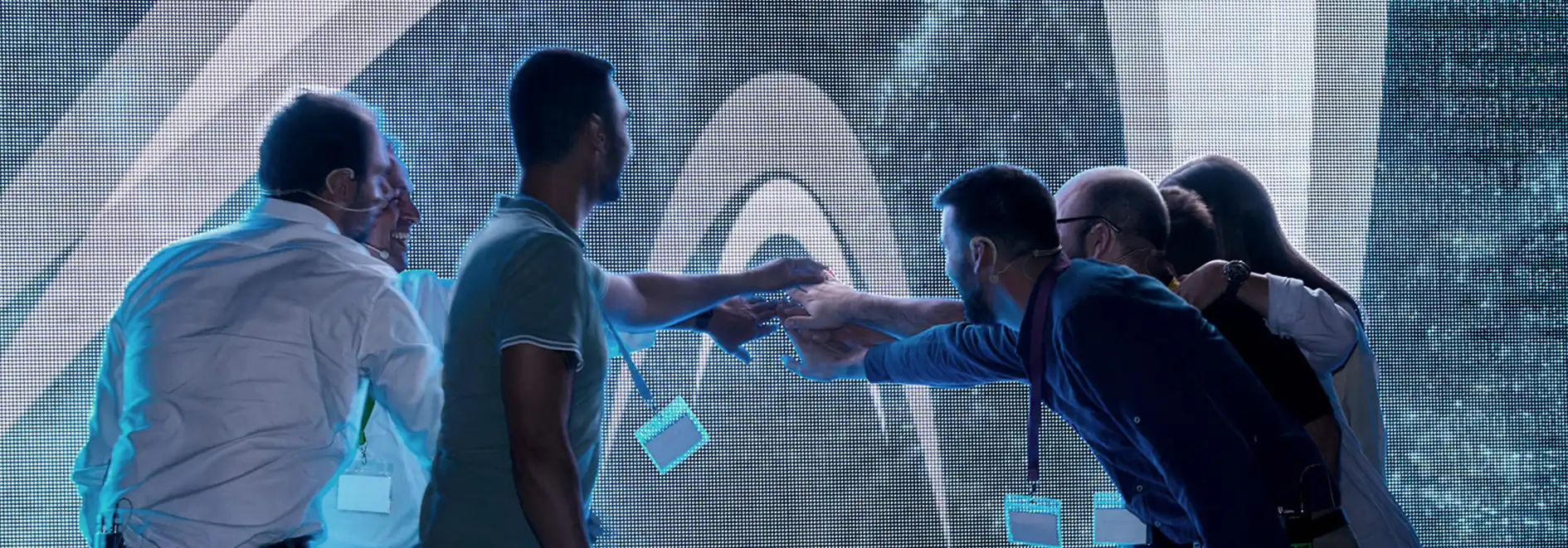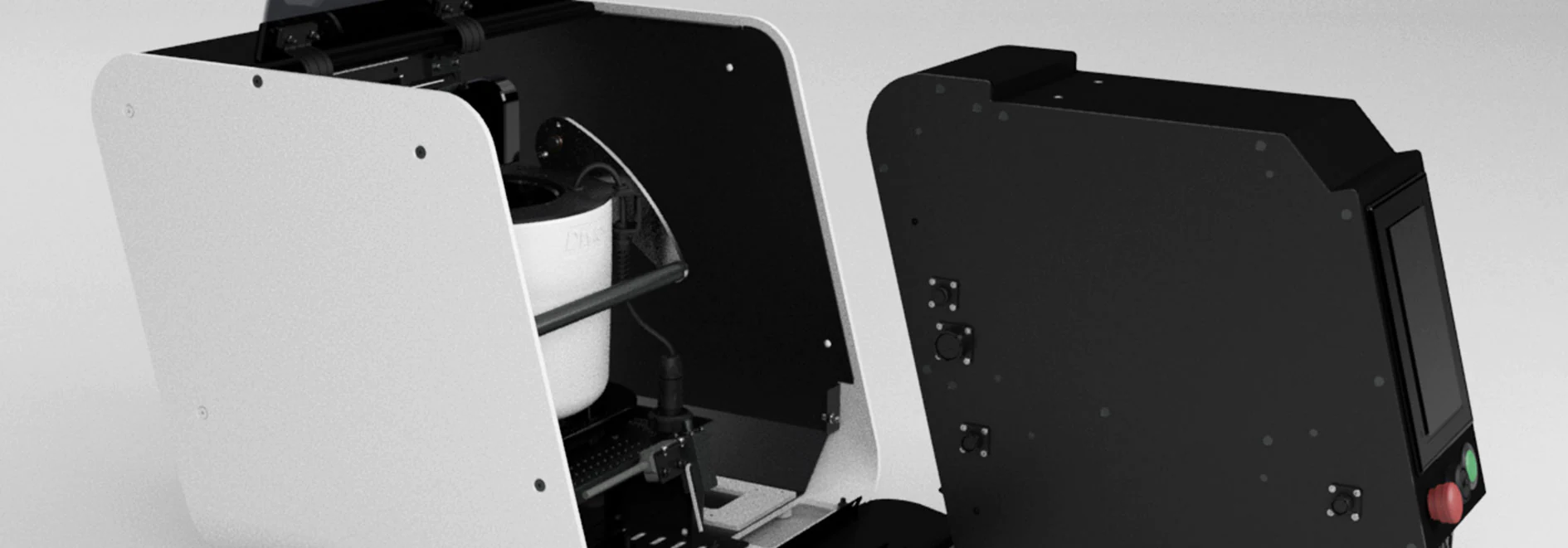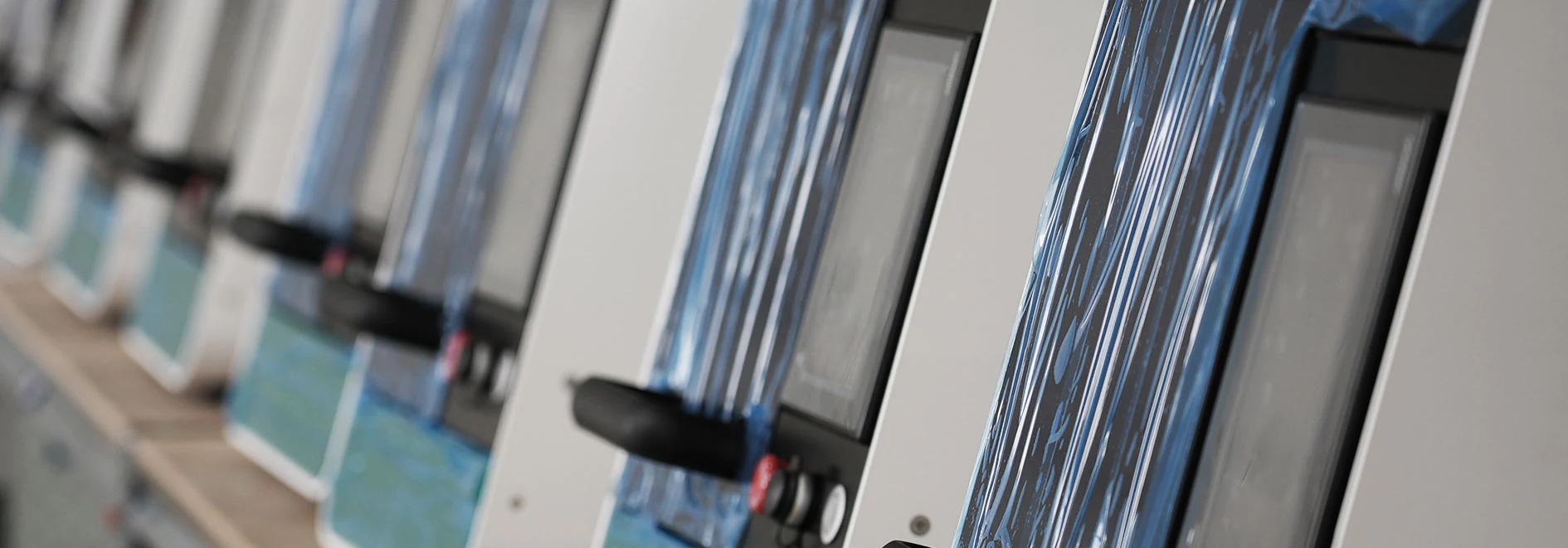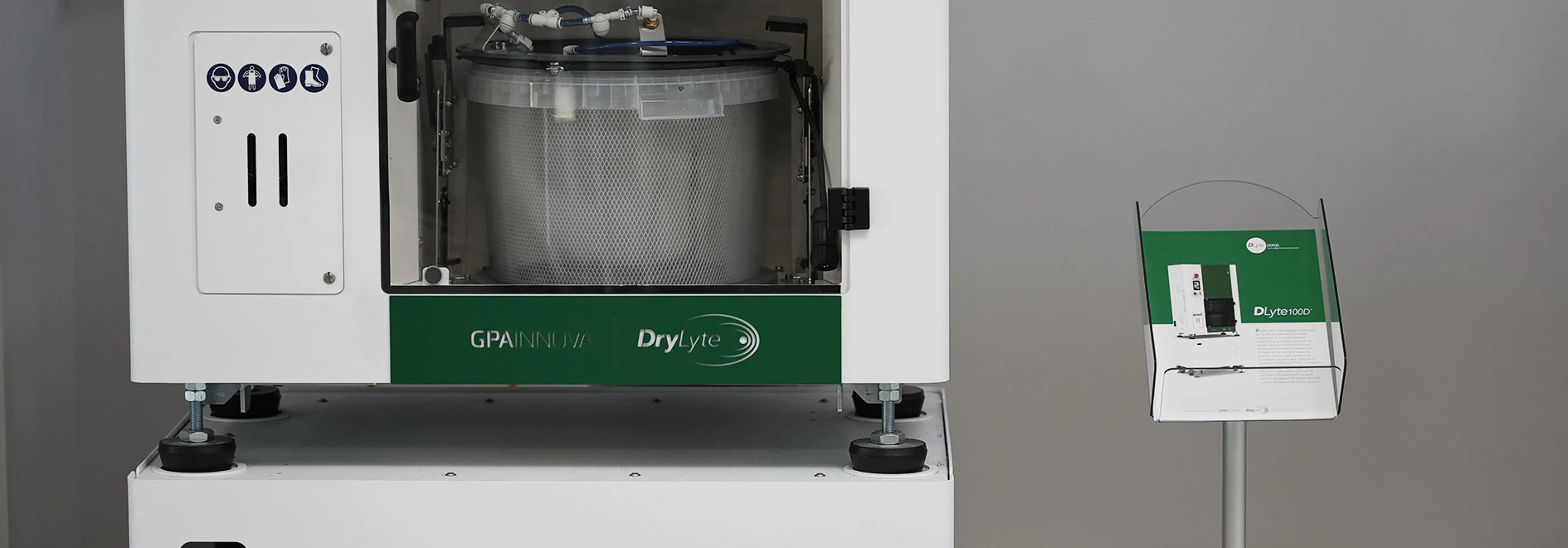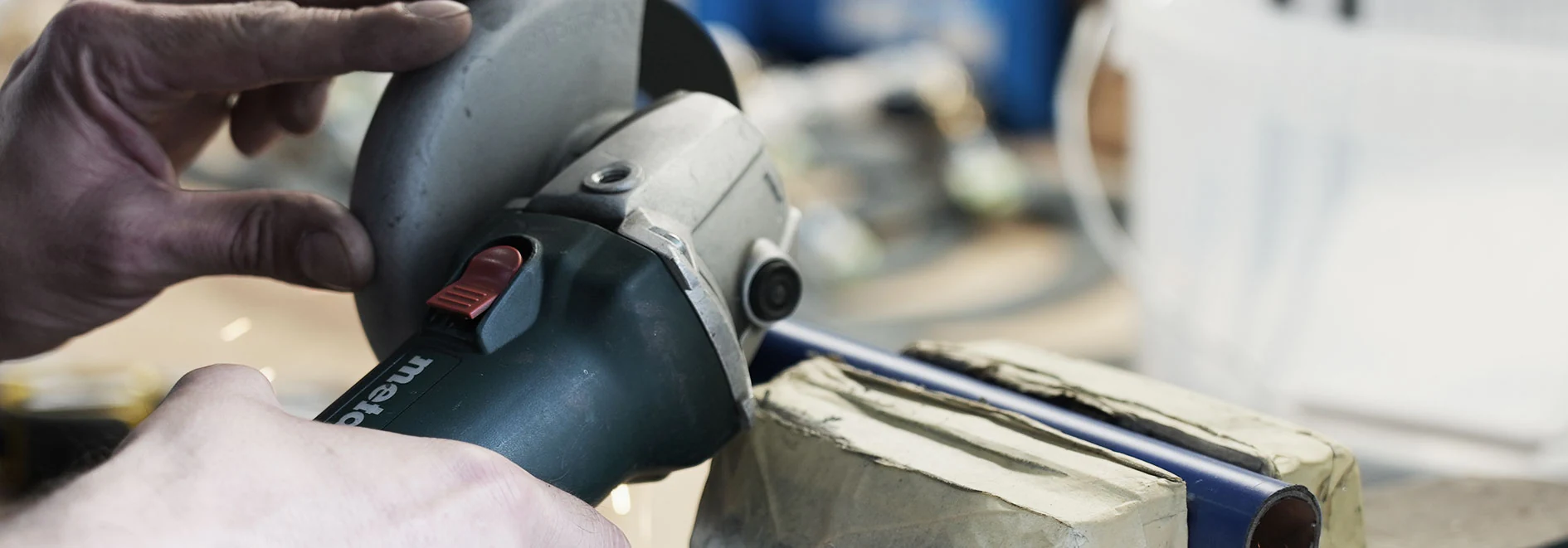The aim of the AI4Electropolishing project is to investigate artificial intelligence techniques to develop a variety of digital tools that allow the DLyte system to be able to identify the different anomalies that are occurring in the process (through virtual sensors and digital twins) and automatically (through algorithms that recommend configurations) to generate “recipes” that allow our customers to vary the parameters and carry out the correct actions to optimise, control and automate the process in the ideal way and achieve the right polishing in each case.
This project proposal aims to take a technological leap forward in the quality control of the polishing process and the surface finish of metal parts. AI4Electropolishing proposes a disruption in the way of monitoring, controlling, recommending and correcting the quality of dry electropolishing offered by DLyte, through the hybridisation of artificial intelligence, virtual sensors and digital twins.
In order to achieve this objective, the following research activities are carried out:
- Control algorithms based on a virtual conductivity sensor: Research and development of a virtual conductivity sensor to model the dry polishing process.
- Control Algorithms based on a Virtual Finishing Quality Sensor: Development of a virtual quality sensor using a correlation of production data, analysing Roughness, Corrosion and μhardness of the finished part.
- Configuration Recommendation Algorithm: Implementation of a recommendation algorithm by which, based on historical data, it is possible to propose configuration values for power source and process time, known Material, Electrolyte and approximate geometry.
- Evaluation and validation of surface integrity – dry electropolishing technology on cobalt-chromium samples.
This project can be carried out thanks to the significant financial support of the European Union with Next Generation funds over the entire project period (2022-2024).
Emaspolish:
The general objective of this project, developed from July 2020 to December 2021, is the research and development of new dry electropolishing concepts that allow the simultaneous polishing of a large number of parts and the polishing of larger parts in a highly efficient manner, applying solutions that improve polishing results on parts with complex geometry, dispense with the use of frames to hold the part, improve electrical conductivity and thus the effectiveness and polishing times and allow greater control of the process parameters to maximise the performance of the process.
In order to achieve this objective, the following technical objectives have been carried out:
- Improvement of the performance of the polishing process based on the study of the electrolyte.
- Increasing the polishing capacity of large series of small parts by minimising preparation and unloading times.
- Improving the polishing of large parts with complex geometry by applying a new vibratory technology.
In addition, with the execution of this project, GPAINNOVA seeks to meet the following commercial, strategic and environmental objectives:
- Increase the company’s competitiveness, developing new devices with high added value.
- Achieve a strategic position thanks to the differentiation of its new process, thus reinforcing its position in the industrial sector.
- Increase the company’s international presence.
- Expand and diversify the company’s product portfolio.
- Direct the company’s human and material resources towards activities and tasks that provide greater added value.
- Develop new technological knowledge as a positive differentiating element through a firm commitment to achieving higher levels of Know-How. levels of Know-How.
- Promote the generation of employment as a consequence of the growth in investment in I+D+i activities.
- Reduce the impact on the environment.
Misiones Humain:
The main objective of the HUMAIN Missions project is to promote the digitalisation of industry in Spain within the framework of the industrial revolution of the 21st century. This project is carried out in consortium with: Bama, Centum, Amper S&C IOT and BitMetrics. These companies share the goal of researching and developing new solutions based on artificial intelligence (AI) and Yate for the creation of highly complex 5.0 production processes.
The project is within the context of Mission 3, which aims to boost Spanish industry in the current industrial revolution. To achieve this objective, the consortium focuses on six key areas:
Fostering the integration between the physical and digital environment in industrial processes through the application of Information and Communication Technologies (ICT), such as the Industrial Internet of Things (IIoT). Technologies such as sensorisation, robotics, artificial intelligence and simulation are considered.
- Develop advanced technologies for flexible and automated manufacturing processes, with strong sensing capabilities.
- Research technologies to validate the quality of components and processes, controlling and correcting errors along the manufacturing chain through non-destructive inspection systems.
- Develop technologies to make industrial production more efficient and sustainable, focusing on aspects such as energy efficiency and reduction of the environmental footprint.
- Establish collaborative environments between people and robots, with modelling, simulation and advanced programming to ensure operational safety.
- Develop new technologies and services based on data exchange and analysis, using advanced decentralised artificial intelligence techniques.
In summary, the technological objective of the project is to investigate and develop synergies in two use cases of complex production processes: additive manufacturing of metal parts and their further processing, as well as collaborative robotisation in warehouse packaging. These use cases will be driven by enabling technologies such as artificial intelligence, Yate and machine vision, in order to achieve digitised, more versatile, less wasteful and higher quality manufacturing processes.
This project can be carried out thanks to the significant financial support of the European Union with Next Generation funds over the entire project period (2022-2024).
Interempresas – Dryocat:
DryCoat’s main objective is to develop safe and sustainable equipment and technologies for electroplating and anodising, using patented dry electrolytes, technology and equipment designed for electrolytic polishing. The key advantages of these dry technologies, compared to traditional liquid-based technologies, are as follows: 1) the use of more environmentally friendly electrolytes, 2) the achievement of coatings of uniform thickness on all surfaces, 3) the prevention of hydrogen embrittlement during the electrocoating process, 4) the possibility to recycle the electrolytes and 5) the need for lower temperatures. In addition, the use of dry electrolytes instead of liquids (which must be kept in tanks) and the equipment to be developed will allow these surface treatments to be carried out in any type of workshop like any other machine. In this project, dry electrolytes for titanium anodisation and electrocoating of copper, nickel and precious metal coatings will be optimised and extended. To achieve this, solid-state electrolyte particles including base polymer particles will be modified by the addition of certain chemicals, salts and acids. The regeneration of these electrolytes will also be investigated during the project. Process parameters will be modelled and optimised to develop coatings that meet both biomedical and jewellery requirements, and equipment will be developed to carry out anodisation and dry electrocoating.
The main business objective is to provide dry electrolytes, simulation software and equipment for coating and anodisation services for customised titanium surgical implants and jewellery, meeting biomedical and jewellery requirements. The consortium covers the entire value chain to reach the market and expects to generate revenues through direct sales of the main project deliverables.
It is a consortium project together with DryLyte, S.L. and Bionic Surface Technologies which will focus on two main markets: biomedical components (implants) and jewellery manufacturing using precious metals for coating. The DryCoat consortium will offer its products and services to the following customer groups (companies): (A) Biomedical companies and jewellers producing surgical implants and jewellery (B) Companies that provide other surface treatments and wish to expand their offerings without making significant changes to their infrastructure (C) Chemical suppliers (D) Surface treatment companies that currently use conventional methods to anodise titanium implants and plate jewellery (E) Surface treatment companies that currently use conventional methods to anodise titanium implants and plate jewellery (F) Chemical suppliers that currently use conventional methods to anodise titanium implants and plate jewellery.
This project can be carried out thanks to the significant financial support of the European Union with Next Generation funds over the entire project period (2022-2024).







